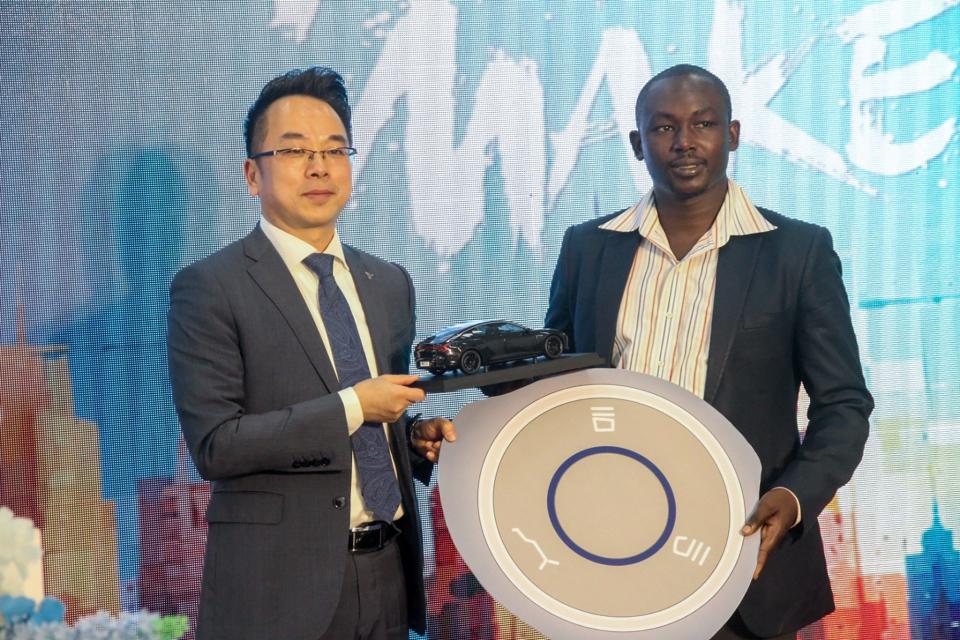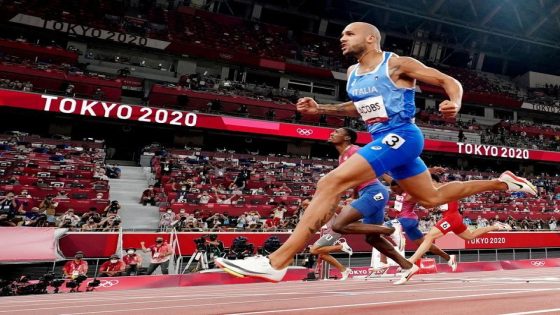The move by Europe and the US to impose higher tariffs on Chinese electric vehicles (EVs) has been labelled no more than “a temporary setback” by an executive of a Chinese EV maker.
Neta Auto vice-president Zhou Jiang also said that the tariffs were instead pushing Chinese companies to search for alternative markets, including Africa.
He said Neta considers the increased tariffs on Chinese EVs and batteries to be “protectionist policies”.
But while he was confident the tariff rise was just a bump in the road, he said if it continued for too long, it could cause more problems.
“If the policies last long, that would have a negative effect on consumers’ experience with product selection and our technology development,” he said.
In the meantime, Zhou said Chinese EV brands are exploring other overseas markets, highlighted by his visit to Kenya last week to open Neta Auto’s first African store – marking “a new phase of EVs entering the African market“.
In an interview on the sidelines of the opening, Zhou said countries in Africa, Southeast Asia, South America and some European markets are all on the radar of Chinese EV brands.
“We believe that these policies or obstacles are temporary or short-term,” Zhou said.
“We believe that global consumers will choose the best technology, quality product and excellent service.”
On June 12, the European Commission shocked China by announcing it would impose additional tariffs of up to 38 per cent on imported Chinese EVs from July 4. The news came just a month after the US announced similar plans to quadruple duties for Chinese EVs from 25 per cent to 100 per cent.
The tariff increases are the result of the European Commission’s anti-subsidy investigation launched last October. Europe and the US have both accused China of distorting the market by giving subsidies to Chinese carmakers which had led to an influx of lower-cost EVs.
Beijing has rejected the claims as “baseless hype”.
Zhou also rebuffed the accusations, saying the current quality products, good service and competitive pricing of Chinese EVs has taken more than a decade of development.
“That’s why we cannot say that the best product quality and low price is a result of Chinese government subsidies only,” Zhou said.
He also noted that, globally, many governments give subsidies to carmakers.
“Some countries or regional governments actually give a lot of subsidies for their brands,” Zhou said.
In Nairobi, the Chinese EV maker debuted its Neta V star model car, with dealer Moja EV Kenya as its distributor. It will retail for around US$31,000 and has a range of about 380km (236 miles) on a full charge. Other models such as Neta Aya and Neta X will follow in the coming months.
Neta Auto has also signed a memorandum of understanding (MOU) with Kenya-based Associated Vehicle Assemblers (AVA) to assemble 250 EVs every month. Kenya will then become the hub for exports of the Neta EVs to the rest of Africa.
“Together with AVA, we will quickly produce local EVs in Kenya. Neta will provide our resources for training and technology transfer,” Zhou said, adding that assembly could begin in the first half of 2025.
Looking to its African future, over the next two years the EV maker plans to enter 20 countries and open 100 stores. And within three years, Neta hopes to achieve an annual sales volume of more than 20,000 units in Africa.
Neta began its operation of a production plant in Thailand last year. It also recently began mass production of EVs at its Indonesia plant, while it is currently building its third overseas plant in Malaysia.
“The successful launch in Kenya is not only an exciting chapter of Neta Auto’s globalisation story but also a powerful step for the Chinese brand on the world stage,” a Neta statement said.

Neta Auto vice-president Zhou Jiang presents a dummy car to the company’s first Kenyan customer, Paul Mwai, during the official opening ceremony of the MojaEV showroom in Nairobi. Photo: Handout alt=Neta Auto vice-president Zhou Jiang presents a dummy car to the company’s first Kenyan customer, Paul Mwai, during the official opening ceremony of the MojaEV showroom in Nairobi. Photo: Handout>
Other Chinese EV giants such as Build Your Dreams (BYD), Geely, Dongfeng Motor, Great Wall Motor and SAIC Motor are considering Africa’s nascent market a great opportunity for EVs.
In Casablanca, Morocco last month, AD Huang, BYD general manager for the Middle East and Africa, launched the company’s new Seal U DM-i model, saying it “marks an important attempt for us in the African market”. Morocco is fast becoming something of a hub for EVs in Africa, attracting a growing number of Chinese EV and battery manufacturers, including BYD, which is set to continue promoting the development of EVs in Morocco and across the continent.
Last year, the company launched its all-electric C-segment crossover BYD Atto 3 in South Africa. It also entered the Rwandan market in January with its Atto 3 via the CFAO Mobility dealership. The Dolphin and Dolphin Mini models will be available later this year, it said.
Last week, the Chinese EV giant also partnered with Rwandan EV manufacturer Ampersand to build 40,000 electric motorbikes in Rwanda and Kenya. Ampersand will purchase BYD’s battery cells to build around 40,000 electric motorcycles by the end of 2026, with the long-term goal of electrifying a large portion of Africa’s 30 million commercial motorbikes.
“Electrifying the intensively used commercial motorcycles found across Africa is a logical first step to decarbonising a very large potential market of motorcycles across the Global South,” BYD spokesman Sihai Zhang said.
Meanwhile, the assembly of EVs from China is gaining speed in some African countries. In Nairobi, for instance, EV start-up BasiGo is now assembling electric buses from knock-down kits it imports from Chinese state-owned CHTC Motors, as Beijing continues to position itself in Africa as the leader of the global green energy transition.
“Our first electric buses have completed assembly with our partners at Kenya Vehicle Manufacturers (KVM),” Jit Bhattacharya, co-founder and CEO at BasiGo, said in a recent interview.
“These are the first units in what we believe will be the first high-volume, serial assembly line for electric buses in Kenya,” he said.
“It is exciting to see China’s leading OEMs recognising the enormous market opportunity from the emerging e-mobility industry in Africa,” Bhattacharya said.
Walt Madeira, principal analyst for Europe, the Middle East and Africa vehicle forecasting at S&P Global Mobility, said Chinese carmakers have big plans for its EVs and over the years the Chinese government and construction companies have developed good relationships across Africa.
“Our forecast shows a positive demand development for Chinese carmakers in Africa, but at a slow sustainable rate,” Madeira said.
However, he said the big roadblocks are the lack of EV infrastructure and the instability of the energy. South Africa, for example, experiences many power disruptions.
He said the launch of plug-in hybrid electric vehicles (PHEVs) would be a good bridging technology for Chinese carmakers.
“At the moment, hybrids are gaining in popularity among consumers, exactly because they are fuel efficient and give peace of mind with no need for charging headaches,” Madeira said.
This article originally appeared in the South China Morning Post (SCMP), the most authoritative voice reporting on China and Asia for more than a century. For more SCMP stories, please explore the SCMP app or visit the SCMP’s Facebook and Twitter pages. Copyright © 2024 South China Morning Post Publishers Ltd. All rights reserved.
Copyright (c) 2024. South China Morning Post Publishers Ltd. All rights reserved.
Source Agencies

